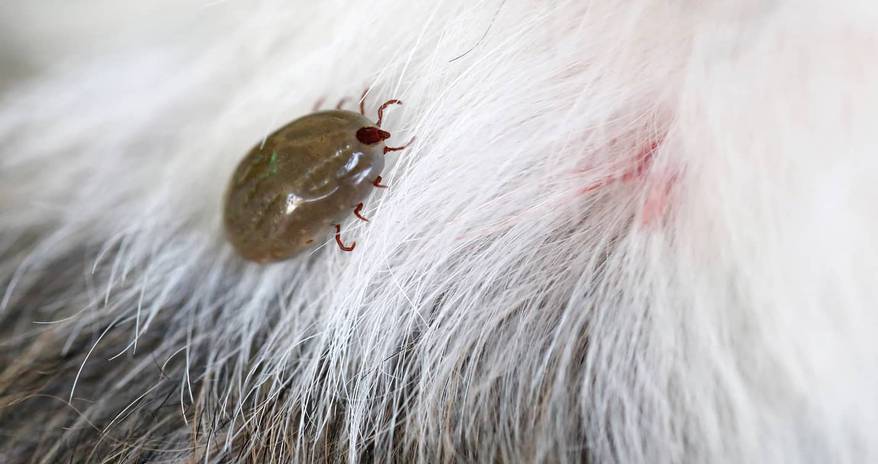
-
Find the right food for your petTake this quiz to see which food may be the best for your furry friend.Find the right food for your petTake this quiz to see which food may be the best for your furry friend.Featured products
 Puppy Lamb Meal & Brown Rice Recipe
Puppy Lamb Meal & Brown Rice RecipeVital nutrients to support 5 essential building blocks for lifelong health
Shop Now Adult Chicken & Barley Recipe Dog Food
Adult Chicken & Barley Recipe Dog FoodSupports lean muscle and beautiful coat for adult dogs
Shop Now Adult Small & Mini Lamb Meal & Brown Rice Recipe Dog Food
Adult Small & Mini Lamb Meal & Brown Rice Recipe Dog FoodFor the faster metabolism of Small & Mini dogs
Shop NowFeatured products Adult Chicken & Barley Recipe Dog Food
Adult Chicken & Barley Recipe Dog FoodSupports lean muscle and beautiful coat for adult dogs
Shop Now Adult Indoor Chicken Recipe Cat Food
Adult Indoor Chicken Recipe Cat FoodSupports energy level and beautiful fur in indoor cats
Shop Now Hill's Science Diet Adult Sensitive Stomach & Skin Chicken Recipe Dog Food
Hill's Science Diet Adult Sensitive Stomach & Skin Chicken Recipe Dog FoodHighly digestible recipe, gentle on stomachs. Nourishes skin & promotes a lustrous coat
Shop Now -
Dog
- Dog Tips & Articles
-
Health Category
- Weight
- Food & Environmental Sensitivities
- Urinary
- Digestive
- Joint
- Kidney
-
Life Stage
- Puppy Nutrition
- Adult Nutrition
- Senior Nutrition
Cat- Cat Tips & Articles
-
Health Category
- Weight
- Skin & Food Sensitivities
- Urinary
- Digestive
- Kidney
-
Life Stage
- Kitten Nutrition
- Adult Nutrition
Featured articles Virtual Vet Visits: What You Need to Know
Virtual Vet Visits: What You Need to KnowLearn the ins and outs of a televet appointment before you talk to a vet online.
Read More Pet Dental Health: What Happens During a Deep Teeth Cleaning?
Pet Dental Health: What Happens During a Deep Teeth Cleaning?Learn about veterinary dental care for your pet, including deep teeth cleaning procedures, which can help your dog or cat maintain proper dental health.
Read More My Pet Ate a Lizard — What Should I Do?
My Pet Ate a Lizard — What Should I Do?Learn what to do if your pet eats a lizard, including whether they can be toxic and symptoms to keep an eye on when they've swallowed one.
Read More -


Tiny bugs can carry big risks for your pup, from mild itchiness to serious illnesses. Read on for a guide to noticing, treating and preventing some common bug bites on dogs.
Fleas
What you'll see: If your dog has fleas, you'll see him scratching and licking himself. Look for fleas or black specks in areas like his head, neck and groin. Dogs with sensitive skin can suffer from flea allergy dermatitis — an allergic reaction to proteins in flea saliva. Fleas can also carry tapeworms that are transmitted to your pet.
Prevention: Preventive flea medications are extremely effective. Ask your veterinarian about finding an effective chewable treat, pill, topical solution or flea collar.
How to get rid of fleas: Treating your dog will go a long way to solving the issue. If you weren't able to stop these bugs from jumping aboard, bathe your dog with a medicated flea-killing soap. Vacuum and wash areas your dog frequents and, if needed, consider either a flea spray or pest control treatment for your home. Prevention (medications and collars) are always the best way to get rid of fleas! They are extremely difficult to eradicate once they are in the home.

Ticks
What you'll see: Ticks can live nearly anywhere and be found in all seasons, but they are most commonly stirred up in tall grass and bushes in the warmer months. Look for small brown specks or swollen black dots on your dog's face, head, ears, groin, paws, sides and limbs. Checking after every walk or trip outside can prevent ticks from latching on and biting or climbing onto other (human and furry) members of your household.
Ticks can transmit serious diseases to dogs and humans. The signs of an illness, such as Lyme disease, ehrlichiosis, bartonella or Rocky Mountain spotted fever, can be hard to diagnose and will often not arise from weeks to even months after your dog was bitten, says the American Kennel Club Canine Health Foundation. Prevention is key to keeping your dog healthy.
Prevention: Many of the same medications that prevent fleas will also keep ticks away. To prevent tick-borne diseases, check your dog nose-to-tail after every walk and report any unusual behaviors, like irritability or lethargy, to your vet.
How to get rid of a tick: If your dog does have a tick, remove the entire head and body with tweezers. Grasp the tick as close to the dog's skin as possible and pull gently without squeezing the body of the tick. (Those suckers can pop!) Save the tick in a piece of clear tape or a small jar of rubbing alcohol in case your vet needs to test it for disease. It is also good to note that many Vets are happy to assist in removing the pet pests.
Mites
What you'll see: Mites are microscopic and burrow deep into a dog's skin, so you likely won't see them. You will see the effects, however, including inflammation, hair loss and skin lesions. Mites usually cause intense itching, so if a usually calm dog can't stop scratching and biting himself, it's time to call the vet.
Prevention: Unfortunately, there's no preventive medication for a mite infestation, also called mange or scabies. Mites are contagious and spread by contact with other dogs and animals like foxes, so keep an eye out for scratching if your dog has recently stayed in a kennel or sniffs around areas where local wildlife might live.
How to treat for mites: The Animal Clinic of Woodruff says the most effective treatment is to cut the dog's hair short and give him medicinal baths once a week for a month. "Unfortunately," the vet's office notes, "the dip has a very foul smell and can be toxic to humans and vulnerable dogs, so great care is needed in dipping dogs (and in treating their facial areas)." The dog's bedding and other areas he frequents should also be treated with an insecticide, the clinic advises.


Tasty Tips
Mosquitoes
What you'll see: Pets, just like us, can instantly feel the sensation of a mosquito bite zinging the skin, so you might see your dog suddenly licking, chewing or scratching himself. Mosquito bites can cause swelling, redness and hives in a dog, but the bite itself is unlikely to cause lasting harm.
The most common problem from a mosquito bite in a dog is heartworm disease. If the mosquito is carrying the heartworm larvae, this dangerous disease may be transmitted to your pet.
Prevention: It's more important to protect your dog from heartworm than from the bite itself. Keep up with doses of a prescribed oral or topical preventive year-round but especially during mosquito season, advises the University of Illinois College of Veterinary Medicine. Heartworm medication can protect your dog's heart, lungs and perhaps save his life.
How to treat mosquito bites: Aside from heartworm risks, an itchy bite is unlikely to do any lasting harm. Certain pet-safe and natural bug repellents can keep mosquitoes at bay, but others can be toxic to your pet, so ask your vet about what's safe to spray.

Bees, Wasps and Hornets
What you'll see: Accidentally stumbling onto an angry bee, wasp or hornet is as unpleasant for your dog as it is for you. The sting will cause a significant unexpected pain, so you might hear your dog let out a yelp. You might also notice some immediate lameness if he's stepped on a bee, or itching or licking if the wound is elsewhere.
Some dogs are allergic to bee stings. In those cases, you may see swelling, redness, hives, vomiting, diarrhea, stumbling or even a collapse. Even if your dog is not allergic, stings on his nose or mouth could restrict his breathing. Call your vet immediately if your pup suffers more than one or two bee stings.
Prevention: It's hard to keep bees away, but if you have a hive near your home that is bothering you and your dog, you can talk to a local beekeeper or exterminator about relocating it.
How to treat bee stings: Dr. Patty Khuly writes in the Miami Herald that if a dog gets stung away from the mouth or face, applying an ice pack is probably all that is needed. Treat his bee stings the same way you would treat yours, however never give your dog human medication without consulting with your veterinarian first.
Insect bites are an unavoidable part of summer, but they can carry issues for you and your dog. By keeping an eye out for common bug bites on dogs, you can nip your furry friend's problems in the bud.


Kara Murphy is a freelance writer and pet parent who lives in Erie, Pa. She has a goldendoodle named Maddie.
Related products

For the faster metabolism of Small & Mini dogs

Supports energy level and beautiful coat in mature dogs who prefer smaller kibble

Supports lean muscle and beautiful coat for adult dogs

Vital nutrients to support 5 essential building blocks for lifelong health
Related articles

Learn about Hill's puppy food and the nutritional benefit & high quality ingredients that it contains for your pup.

Your dog's coat and skin are a big part of your dog's overall health. Ensure you keep your dog's coat healthy, by following these simple tips.

Proper nutrition for your pregnant or nursing dog is vital to her and her puppy's health. Learn what you should do provide her with the proper nutrients.

Discover how the field of dog science is giving us more and more insights into the inner workings of our furry best friends.

Put your dog on a diet without them knowing
Our low calorie formula helps you control your dog's weight. It's packed with high-quality protein for building lean muscles, and made with purposeful ingredients for a flavorful, nutritious meal. Clinically proven antioxidants, Vitamin C+E, help promote a healthy immune system.
Put your dog on a diet without them knowing
Our low calorie formula helps you control your dog's weight. It's packed with high-quality protein for building lean muscles, and made with purposeful ingredients for a flavorful, nutritious meal. Clinically proven antioxidants, Vitamin C+E, help promote a healthy immune system.

